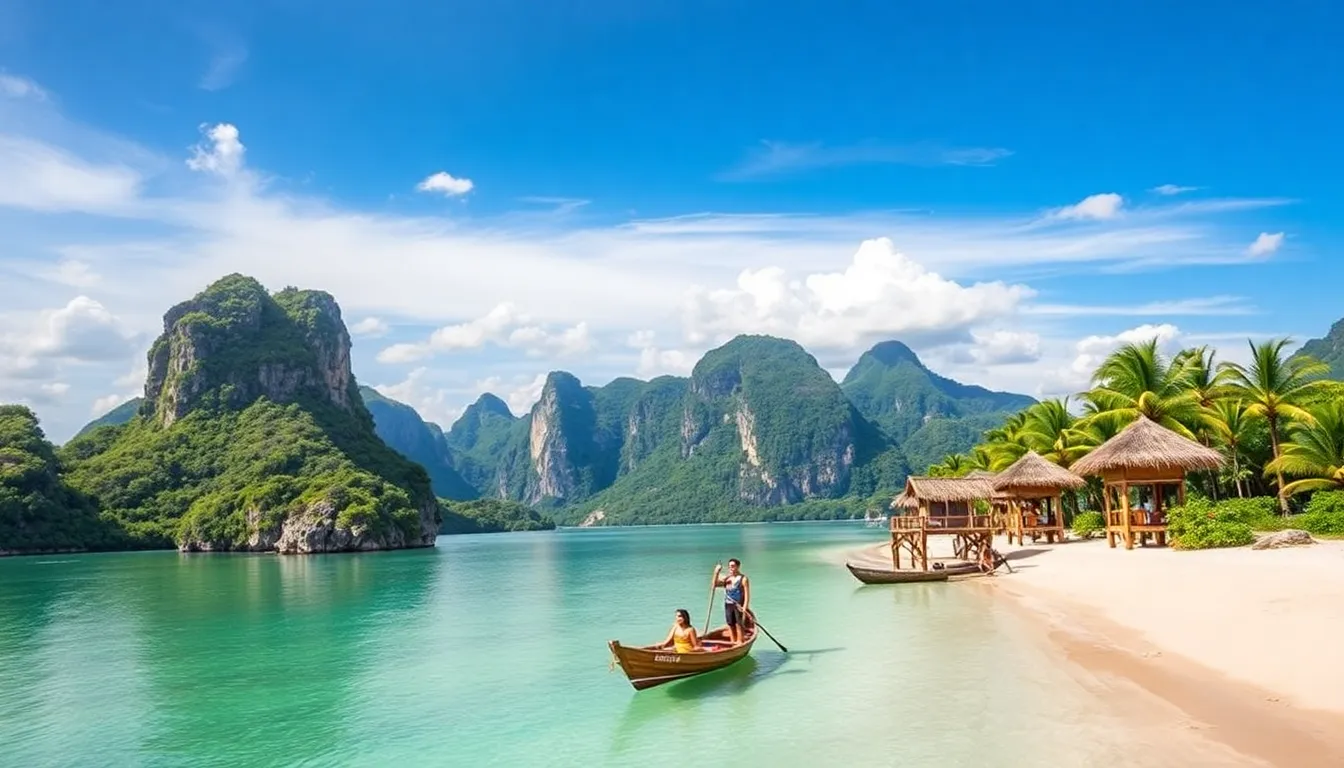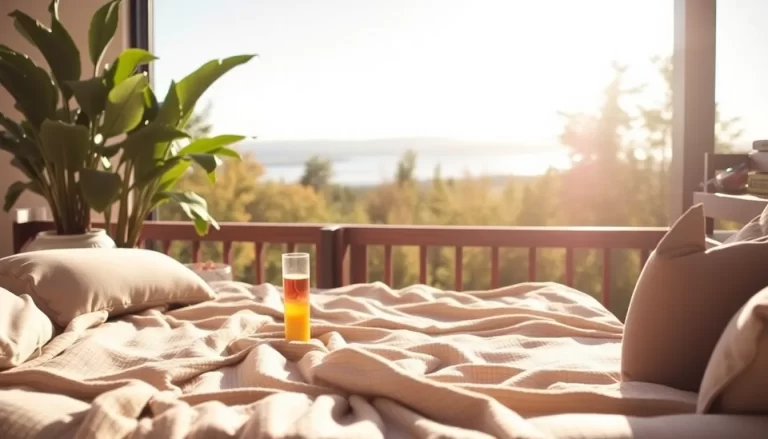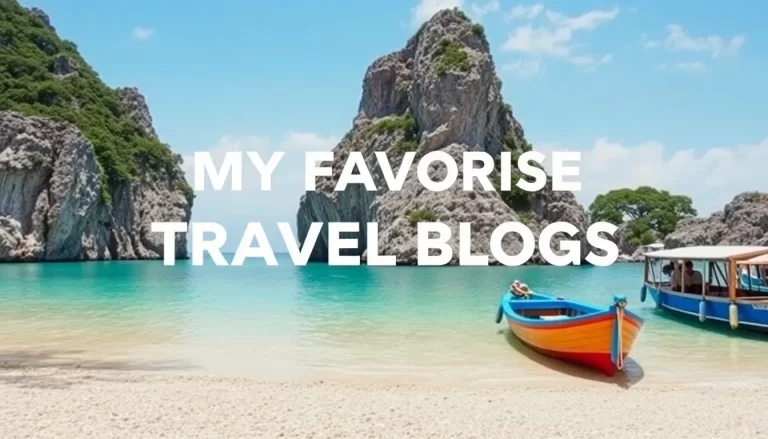Imagine being able to explore the world without breaking the bank. The idea of traveling anywhere for just $1,000 is not only enticing but also entirely possible. This budget doesn’t just cover flights; it encompasses your entire vacation experience, from departure to return. How incredible would it feel to enjoy a week or two of exploration without the weight of financial stress?
For too long, travel has been perceived as an expensive luxury reserved for the affluent, thanks largely to years of marketing by high-end resorts, cruises, and hotels. Despite the abundance of travel blogs, apps, and social media accounts showcasing budget travel, many individuals still cling to the belief that meaningful travel is out of reach. This mindset can be transformed with the right strategies and knowledge.
We are currently experiencing a golden era of travel, characterized by affordable flights, loyalty programs, and the rise of the sharing economy. This new landscape allows travelers to bypass traditional barriers, making it feasible to travel comfortably while adhering to a budget. You no longer have to choose between cramped hostels and lavish resorts. With a little planning and creativity, traveling well on a budget is more attainable than ever.
Understanding the $1,000 Vacation Concept
The concept of a $1,000 vacation is not about extreme budgeting or constant frugality. Instead, it is about finding a balance that allows you to explore and enjoy your destination without overspending. This budget can be a realistic goal for many people who wish to travel but feel constrained by their finances.
Consider this: saving $1,000 translates to putting aside approximately $2.74 each day for a year. For most, this is an achievable target. The journey begins with a change in mindset. Instead of thinking, “I can’t afford to travel because of X,” start asking yourself, “How can I make travel happen?” This shift in perspective opens the door to exploring countless options and solutions.
Planning Your Travel: The Importance of Strategy
Effective planning is key when traveling on a budget. It’s essential to determine how you will allocate your funds and which elements of your trip are most important to you. Start by breaking your journey down into smaller, manageable goals. Focus on one actionable step at a time, such as researching your destination or finding the best flight deals.
Here are a few tips to assist in your planning:
- Set a clear budget for each category: flights, accommodation, food, and activities.
- Research your destination to understand the costs associated with different experiences.
- Look for deals on flights and accommodations well in advance.
- Prioritize free activities to maximize your experience without straining your wallet.
Example Vacations: French Polynesia and Australia
To illustrate the $1,000 vacation concept, let’s examine two examples: a week in French Polynesia and two weeks in Australia. Both destinations are known for their beauty and allure but are often perceived as expensive. With the right approach, you can enjoy them without exceeding your budget.
French Polynesia: An Expensive Paradise
French Polynesia, with its stunning beaches and crystal-clear waters, is often regarded as a pricey destination. However, by leveraging points and miles for flights, you can significantly lower your travel expenses. Flights from the US can range from $1,600 to $1,950, so using loyalty points to cover these costs is crucial.
When planning your accommodation, consider a mix of hotels, Airbnbs, and guesthouses. While luxury resorts are enticing, they come at a premium. Here are some typical costs:
- Airbnb private rooms: $40-$60 per night.
- Entire apartments: $60-$100 per night.
- Resort meals: starting from $25 and going upwards.
To save on food, opt for local eateries and grocery stores. You can expect to spend around $10 a day by avoiding tourist traps and dining at local snack bars. Limit your dining out to special occasions, and consider preparing your own meals when possible.
Australia: Travel on a Tight Budget
While Australia is notorious for its high costs, it’s still possible to explore without draining your savings. After securing a flight using points, budget around $71 per day for a two-week trip. Although food and accommodation can be pricey, there are ways to manage these expenses effectively.
Accommodation options range from hostels to Airbnb rentals, with prices varying significantly between urban and rural areas. Consider the following:
- Hostel dorms: $24-$32 per night.
- Private rooms on Airbnb: $35-$60 per night.
- Camping or Couchsurfing options to save even more.
Food expenses can be challenging, but cooking your meals can drastically cut costs. Expect to spend around $80 for a week’s worth of groceries. Drinking out can add up quickly, so purchase your beverages from stores instead.
Expanding Your Travel Horizons
Traveling on a budget doesn’t mean you need to compromise on experience. The world is filled with affordable destinations waiting to be explored, and with a little creativity, you can stretch your dollars further. Consider these tips for making the most of your travel:
- Choose less touristy destinations that offer great experiences at lower costs.
- Utilize travel credit cards to accumulate points for flights and hotels.
- Travel during off-peak seasons to take advantage of lower prices.
Budgeting for Your Adventure
Creating a budget is essential for any traveler, especially when operating within a limited financial scope. Start by categorizing your expected expenses:
- Flights: Research low-cost carriers and consider flights on weekdays.
- Accommodation: Compare prices across various platforms for the best deals.
- Food: Plan meals ahead of time and prioritize local cuisine to save money.
- Activities: Focus on free or low-cost attractions and experiences.
Overcoming Financial Barriers to Travel
Many people believe that they cannot travel due to financial constraints, but this mindset can be restrictive. Instead of saying, “I can’t afford to travel,” try exploring ways to reallocate your funds. Analyze your daily expenses and consider where you can make adjustments. Small sacrifices can lead to big opportunities.
For instance, consider the following:
- Cutting back on daily coffee expenses can add up over time.
- Opting for home-cooked meals instead of dining out can save significant amounts each month.
- Consider selling unused items to generate extra cash for your travel fund.
Maximizing Your Travel Experience
Travel is not merely about the destination; it’s about the experiences you gain along the way. Embrace the local culture, connect with others, and immerse yourself in new environments. By prioritizing meaningful experiences over luxuries, you can create unforgettable memories without overspending.
Traveling on a budget requires intention and planning, but it’s entirely feasible for anyone willing to put in the effort. The world is vast, and it’s full of opportunities just waiting to be embraced. By changing your perspective and taking actionable steps, you can make your travel dreams a reality.







